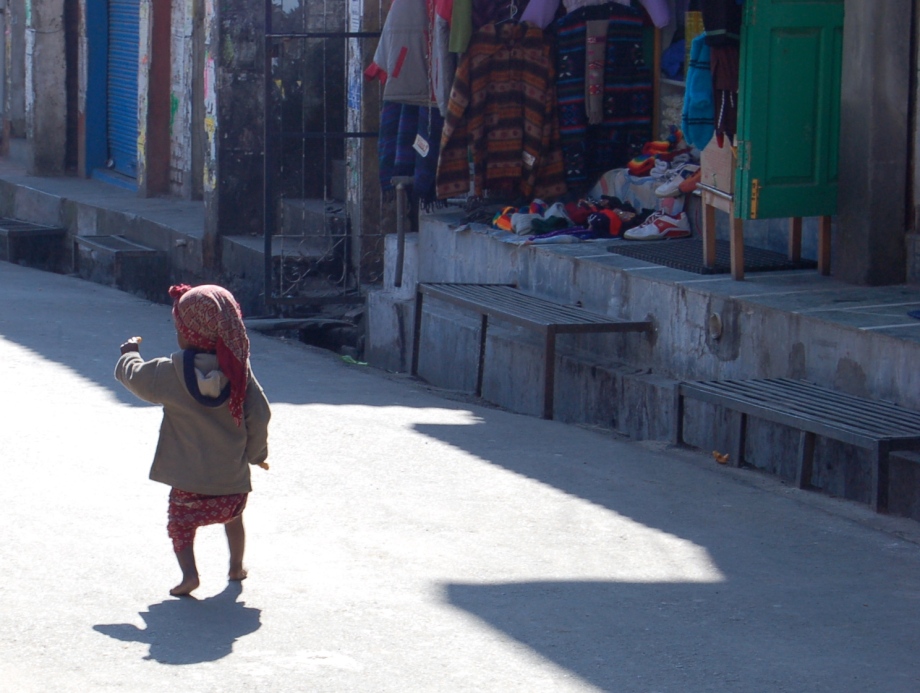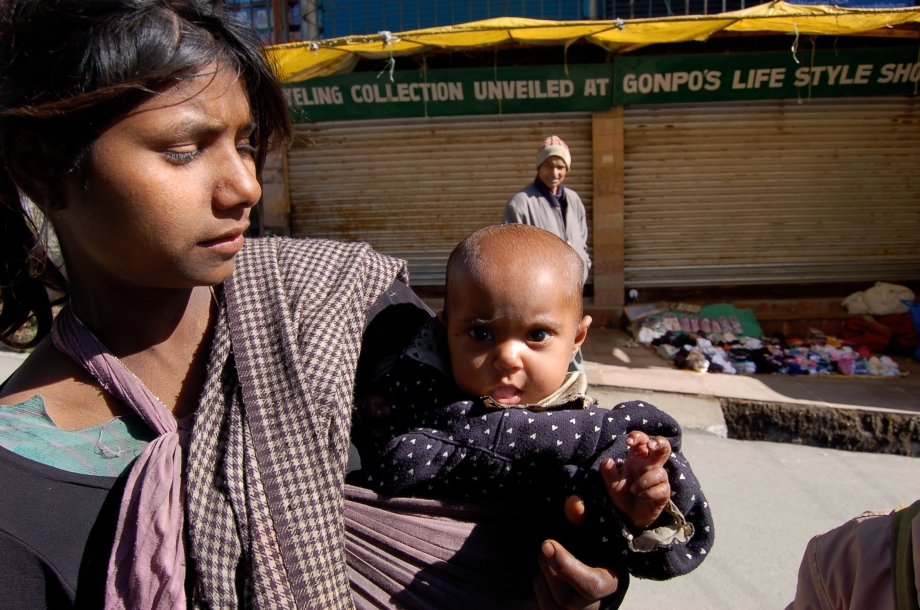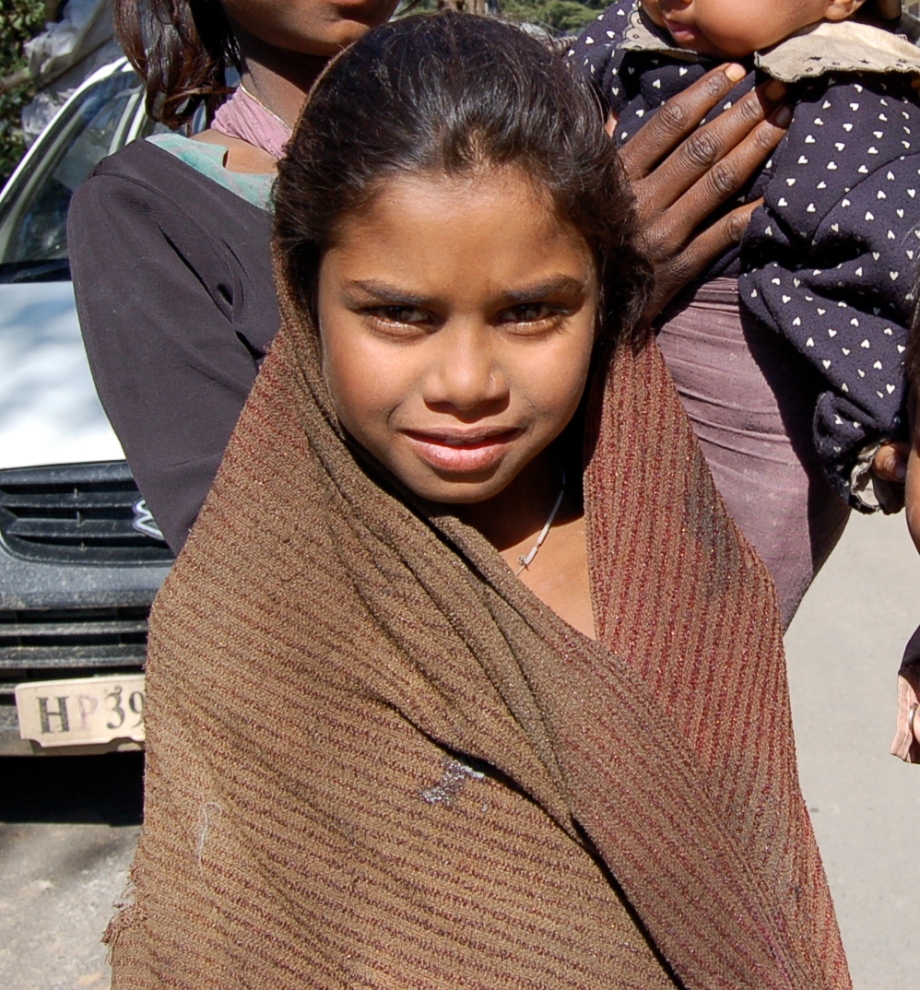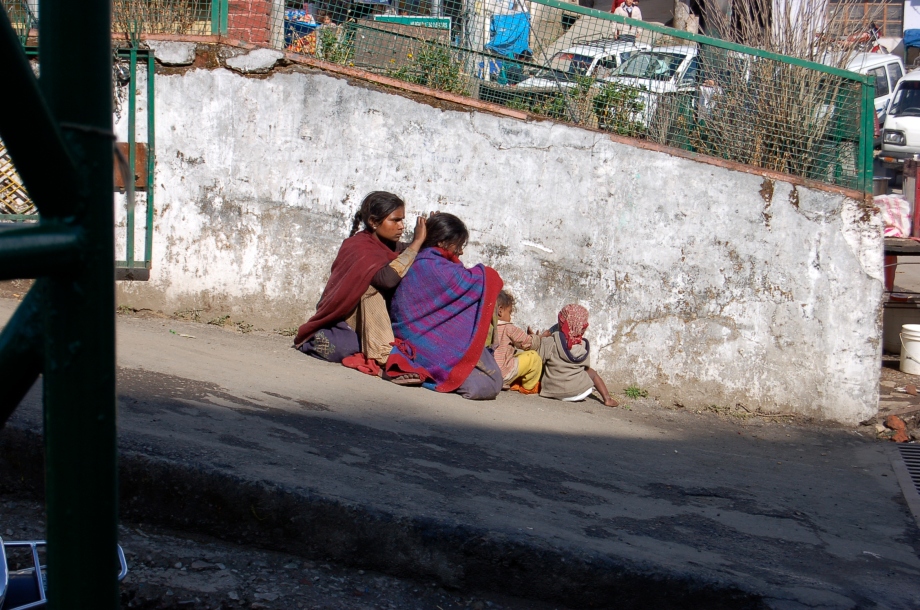A small bundle peeks out from beneath the crutch of an elbow as an Indian woman lifts her arm like a wing. A torn and dingy blanket slung over her shoulder, tied at the neck, reveals a tiny bundle, a package she carries.
“No money, madam, milk for the baby.” I offer rupees, a few silver disks and she pushes my extended palm back into a fist, shaking her head. “No, no. No Money. Milk. Milk for a hungry baby.”
This is a game, of sorts. A bag of milk costs more than I am offering and after the purchase, after I walk away, she will return the milk, which the shopkeeper never bothered to wrap in paper as he would for other customers. And as she hands the milk back, the shopkeeper will return half of the purchase price into her outstretched palm, keeping the other half as his cut, without ever lifting his gaze from the cricket match he is watching.
 It is a side business based off of tourists, both parties are in it together, both making a profit. The beggars ride the bus each day from their settlement in lower Dharamsala to beg money from tourists and then return down the hill each evening to their home.
It is a side business based off of tourists, both parties are in it together, both making a profit. The beggars ride the bus each day from their settlement in lower Dharamsala to beg money from tourists and then return down the hill each evening to their home.
The milk is returned to its bin, awaiting another sale. The baby is three months (so she said). It didn’t cry, didn’t make a sound.

It is a very particular, personal affair. Everyone holding different opinions and differing reactions towards the throngs of beggers that line the streets.
“No money, please sir, milk for the baby.”
You learn to use a brisk, firm wave of an arm or the tilt of a shoulder, a heavy shrug wading through a crowd because it is not just voices speaking and calling out. Hands reach out to touch you, hang on your sleeves, clutch at your scarves and pockets.
This is what catches me off guard the most. Even on the most crowded subway in New York City, no one touches, people may hold their breath, suck in a stomach, balance on the ball of a foot. On a tight airplane or bus seat, where skin and hairs of a forearm brush against another on an armrest, we shift our weight away from the contact. It is a constant dance, a shifting of limbs, everything is pulled in close and compact, because Americans, in general, do not touch strangers. In India, everything has fingers.

Later in the day, an almost identical girl approaches. Same rags. Same size bundled child carried in a sling in the crook of her arm. Almost identical, I look twice. “Please, madam, no money, just milk. Please.” I shake my head, “No, I’m sorry, not today.” And they shuffle past down the dusty lane.

“No madam, not today.”
“Later, then. Okay later, you promise?”
“Tomorrow then, tomorrow, you promise?”
Of all the words to learn, to know. Of the dozen or so words she knows in English-promise is one of them. In a world that has never promised her anything, and probably never will. Over and over they ask, “After, okay? Later, tomorrow, you promise?” As though a promise is matched to a definition she heard about, like it’s an orange in her hand, like it’s a chapatti she can almost taste. A promise, like a sugar cube melting on her tongue.
